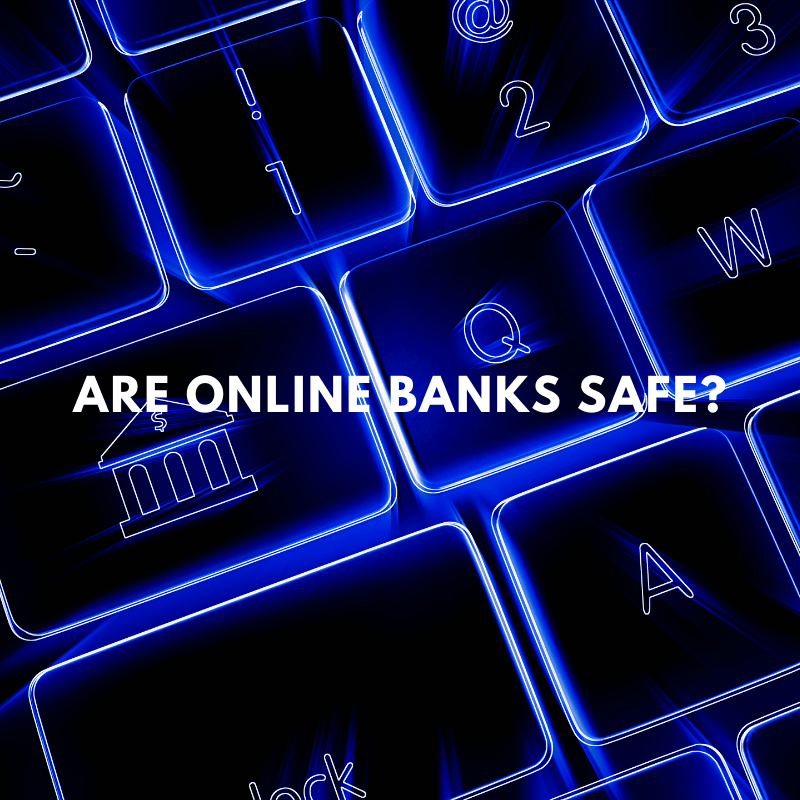When it comes to personal finance, financial risk is a hot topic. While there is always an element of risk, regardless of whether you’re a bank, a saver, or anyone accepting payments, minimizing that risk is of extreme importance.
After all, everyone operating in the financial sphere is there to make money. As such, losing it would be less than ideal. Due to this, many companies have been set up to minimize that risk.
We are all familiar with credit reports and the three big credit bureaus. However, other companies operate in this same space.
These companies are known as CRAs, which stand for Consumer Reporting Agencies. TeleCheck is one such agency. ChexSystems is another.
There is no denying that the CRA space is a crowded one, with many companies operating in this sector. Due to this fact, several CRAs choose to specialize in a given field with TeleCheck, mainly specializing in check acceptance, as in paper checks used to make payments.
While paying by check is very different from opening a bank account, there still exists an element of risk. Check fraud is a real thing, and so are insufficient funds for cashing a check.
Due to this, merchants and financial institutions that accept checks look for ways to minimize risk, with TeleCheck being a prominent risk management tool.
TeleCheck is not used exclusively by banks, it’s also used by retailers and merchants that accept checks from consumers like you.
About TeleCheck
Essentially, TeleCheck is a risk analytics company that tracks your check-writing history to understand the risk a retailer will have to assume by accepting a check from you.
It is run by TeleCheck Services, Inc. (a subsidiary of First Data – a corporation based in Atlanta, Georgia, that offers several financial services, including TeleCheck).
How TeleCheck Works
At face value, the procedure of how it works is quite simple.
The retailer scans your check through TeleCheck, which tells the retailer whether they should accept it.
TeleCheck does not decline your check – it merely makes a recommendation. Then it’s up to the retailer to make that decision.
What goes on under the hood is slightly more complicated. We will delve into that next.
When a retailer such as a grocery store or Walmart scans your check at the point of sale, they run your information through the TeleCheck database, which holds information on you.
In most cases, your record will include historical data uploaded by other merchants who use TeleCheck, as well as what is known as the Predictive Risk Scoring Model.
What is a Predictive Risk Scoring Model?
While a Predictive Risk Scoring Model may sound a little bit fancy, what it is, tends to be a little bit simpler. Let’s have a quick look at what it does.
TeleCheck has records on millions of consumers. It might have a lot of data on some consumers, while it might have a little bit less on others.
To understand the risk posed by those without sufficient data, it uses an algorithm that takes existing data to predict the risk of consumers on which it does not have data.
Unfortunately, this can lead to false negatives. That’s one of the potential reasons why your check may be declined even if you have more than enough money to cover the transaction.
While retailers don’t have to accept or decline a check based on TeleCheck’s score, they are incentivized to do so. TeleCheck guarantees the money as long as they recommend taking the check.
If the retailer accepts a check that it recommended not taking, it’s on them to retrieve the money.
On the other hand, if TeleCheck recommends taking a check which later turns out to be not cashable, TeleCheck provides the retailer a warranty and will make good on the money owed.
Factors TeleCheck Considers
Having your check transaction declined does not mean that you have a bad check. There are many different reasons why TeleCheck may reject your check.
Understanding what these reasons are is very important as it can help you determine the next steps you need to take should you be declined.
- Check History. A history of bad checks means TeleCheck is more likely to reject your check.
- Risk Factors. Based on TeleCheck’s predictive risk scoring model, your check was deemed too risky to accept, and your check may be declined.
- Fraud. If you have a history of fraud, whether it was committed by you or reported by you due to identity theft, your risk factors can become elevated.
- Insufficient Information. If TeleCheck does not have enough information about you as a check writer to decide, it may choose to decline your check.
- TeleCheck History. If you have a history with TeleCheck that includes debt (even if you’ve paid it off), TeleCheck may decline your check.
- Human Error. Unfortunately, human error, whether it’s by the cashier inputting your information or someone mistyping information along the reporting chain, can lead to your check being declined.
Keep in mind that TeleCheck uses a predictive risk scoring model, which in all probability considers hundreds of factors and data points to determine your score.
It is nearly impossible to list every one of them, more so when one considers that the model is proprietary. As such, TeleCheck does not share what information is fed into it.
One important thing to note here is that TeleCheck does not do check verification. It cannot tell the person running the check verification is a check can be cashed or not – it can only report whether it’s likely to cash or end up a returned check.
While this may seem unfair, it’s widely used in the world of personal finance (including credit card applications), where risk needs to be measured and assessed.
Either way, if you have been declined a check by TeleCheck, you will first need to request a copy of your report, which you’re entitled to get. You’ll then open a dispute should the information turn out to be incorrect. We will cover these next.
How To Check Your TeleCheck Report
TeleCheck is a registered Consumer Reporting Agency, which means that under the FCRA (Fair Credit Reporting Act), you can get one free report per year.
You are also entitled to a free report should your check be declined based on any information contained within the report.
To request a report, you’ll need to use the TeleCheck Consumer File Report feature as available on TeleCheck’s website.
Here, you’ll need to provide some information, including:
- First name
- Last name
- Address
- Phone number
- Drivers License or State ID
- SSN (Social Security Number)
You might also need to fill in your checking account details. However, this is not mandatory since TeleCheck should find your account information through your SSN.
You can also request a report by post by sending in the following information:
- Your daytime contact information
- Copy of driver’s license
- SSN (Social Security Number)
- Copy of voided check (not mandatory and should be avoided)
To the following address:
TeleCheck Services, Inc.
Attention: Consumer Resolution Services
P.O. Box 6806
Hagerstown, MD 21741-6806
What To Do If TeleCheck Declined Your Check?
If you’ve experienced a check decline due to a TeleCheck report, the first thing that you need to do is to understand why you have been declined.
Fortunately, declines come with a decline code which you can check on TeleCheck’s website.
How To Check Your Status with Telecheck
You’ll need to provide both your decline code as well as the last four digits of your bank account. Remember to use the account number to which the check you tried to pay is tied.
Next, you’ll need to get yourself a copy of the report. As we discussed in the previous section, you are entitled to a free yearly report and a free report should you be declined.
Once you receive the report, you’ll need to make sure that the information contained within the report is accurate. If you find any mistakes in the report, you can open a dispute.
Once you open a dispute, TeleCheck has 30 days to complete its investigation and verify the information. Keep in mind that the time window extends to 45 days should you request a report under the FCRA rules.
You’ll need to submit additional information like justification and comments with the dispute so make sure you have as many details as possible to avoid unnecessary delays.
The investigation may essentially go one of two ways.
Either TeleCheck will not verify the information, in which case it will remove it from your report. Alternatively, they will verify the information with the company that reported you in the first place.
If your information is verified, you can ask for the verification method. Through this request, TeleCheck must tell you exactly how they verified your information within 15 days of receiving the request, including the business that verified the disputed information.
Once you have received this information, you can open a dispute with the business directly.
TeleCheck FAQs
How do I check my TeleCheck status?
To check your TeleCheck status, you can request a report. Under the FCRA (Fair Credit Reporting Act), you are entitled to one free report every 12 months.
You can also request a report for free should you be declined based on the information provided in a TeleCheck report.
You can request a report by filling in the form available on TeleCheck’s website or by mail.
Why did TeleCheck decline my check?
A declined check by TeleCheck could be the result of several reasons. These generally fall into one of two categories.
The first category is that of bad history. TeleCheck takes into account different events such as instances of fraud, bounced checks, and unpaid debts.
The second category is that of not enough history where TeleCheck does not have enough information to decide. In this case, it may choose to err on the side of caution and choose to decline your check.
How do I know if TeleCheck will accept my check?
To know if TeleCheck will accept your check, you will need to request a TeleCheck report. As discussed earlier, you are entitled to a free report every year under the FCRA rules, or should you be declined.
If you’re declined, you’ll get a Decline Code, which you can then use to get more information about why you were declined.
Once you have this and the report, you can open a dispute should any of the information contained in the report prove to be erroneous.
How long does it take to be removed from TeleCheck?
TeleCheck keeps information on record for up to 7 years – considerably longer than ChexSystems, which keeps data on record for five years.
Having said that, if the information contained in your report is inaccurate, you can have it removed earlier by opening a dispute.





No comments yet. Add your own